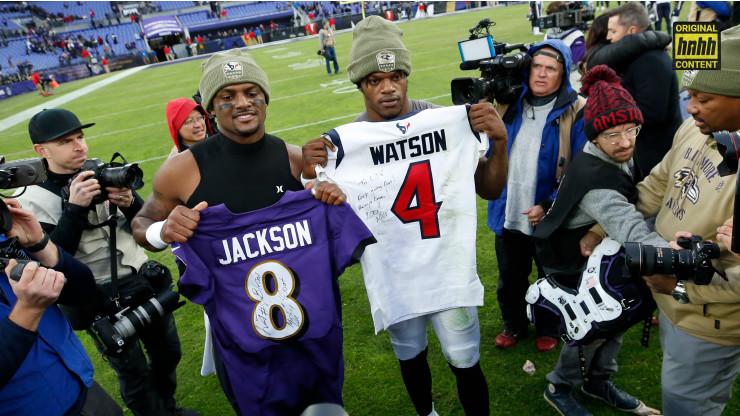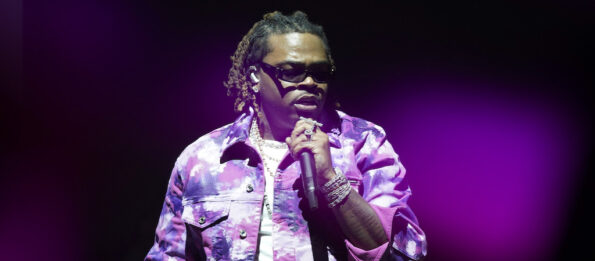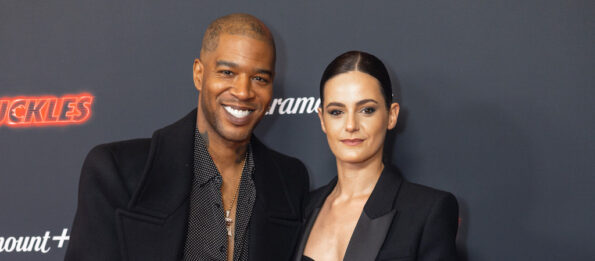The evolution of the African-American signal-caller.
In 1956, Jim Brown rushed for nearly 1,000 yards and 8 touchdowns in only eight games. He was the glaring and obvious choice for college football’s most prestigious award. A surefire no brainer many thought. Digression, you’re probably wondering why I started an article about black quarterbacks with a story about a black running back. Patience is a virtue. Despite his brilliance during the season, Brown did not hoist the Heisman memorial trophy, Paul Hornung did. Hornung was a quarterback from Notre Dame who managed pedestrian figures during the year – 3 touchdowns to 13 interceptions – not to mention his team was 2-8. Hornung was white.
I don’t feel it would be a pontification to say, was Hornung black he wouldn’t have caught the committee’s radar let alone been recognized as a finalist. As has since been noted by journalists of the time, the error of that vote was rooted in racial bigotry. The abstention to recognize Brown was staged by writers holding bygone principles from a fleeting era. To understand the plight of the black quarterback, you must first acknowledge the unearned exaltation of white quarterbacks throughout football history. That coupled with the disproportionate criticism black signal-callers have seen since the sport’s reintegration in the 1940s.
Hornung’s Heisman exemplifies a long-standing tradition in grid-iron culture to glorify the white quarterback. Because of the leadership role quarterbacks are thrust into, and their standing in relation to the marketing and promotion of the franchise – coaches and front office members were languorous to incorporate blacks into a calling of such importance. The story of Brown’s ostracism in the face of Hornung’s praise reads even more ridiculous when citing that Brown, as an NFL rookie, would go on to win pro football’s most valuable player award. Fast forward to 2019, two of the top three vote-getters for this year’s Heisman were black quarterbacks (Justin Fields, Jalen Hurts) and Baltimore Raven’s QB Lamar Jackon will likely be voted the NFL’s MVP after having a historic season. Should he collect the award he would join Jim Brown as one of the youngest MVPs in league history. The success of Jackson, Fields, and Hurts has come after years of tribulation and discrimination for African-American passers who have paved the way for what can be monikered the “Year of the black quarterback.”

Hulton Archive/Getty Images
2019 Proves Historic For Black Quarterbacks
According to ESPN’s The Undefeated, black quarterbacks combined for more starts, wins, touchdown passes and yards this season than any season in NFL history. Lamar Jackson, Patrick Mahomes, Deshaun Watson and Russell Wilson have collectively elevated the standard for statistical benchmarks. Black quarterbacks accounted for a combined 80 victories this season. The previous high was 77 set during the 2000 season by Donovan McNabb, Donte Culpepper, Steve McNair, and company. So are we already looking at an all-time great cluster of African-American quarterbacks?
QBR is a proprietary statistic created to measure the performance of quarterbacks and their overall impact on the game. Five of the highest seven QBR ratings this season belonged to black signal-callers. In what has been an unbelievable 2019 campaign, Lamar Jackson led the league with a mark of 81.7. Jackson. He was followed by last season’s Most Valuable Player Patrick Mahomes of the Kansas City Chiefs at 76.4. Dak Prescott, Russell Wilson, and DeShaun Watson round out the list with ratings above 68.9. Dak Prescott’s 405 yard, 4 touchdown outing against the Miami Dolphins on September 9th, 2019 is just one example of four total games in which black quarterbacks posted a perfect passer rating. The only non-black signal-caller to accomplish this feat in 2019 was Aaron Rodgers.
The front-runner for MVP (Broward county’s own) Lamar Jackson has been routinely delivering jaw-dropping performances. The 23-year-old broke Michael Vick’s quarterback rushing record with 1,206 yards – becoming the first player to have 30 or more passing touchdowns and over 1,000 yards rushing. Jackson had three games with a 99.5-plus Total QBR, matching the rest of the NFL’s total over the last ten years. Should Jackson capture the award he would be the third black quarterback in the last five season to win it, joining Cam Newton and Patrick Mahomes.

Jamie Squire/Getty Image
Plight Of The Black Quarterback
Evaluations of black quarterbacks have been fueled by perpetual racial stereotypes and bias double standards. African-American quarterbacks have been twice as scrutinized and according to a study conducted by the Sage Journal of Sports & Economics, twice as likely to be benched. Long has there been a conception that African-Americans lacked the intellectual capability to play the role. They were systematically steered away from the position for years – up until very recently. The ratio of black quarterbacks remains disproportionate to the overall ratio of black players; as 67% of NFL players are black, yet only 17% of quarterbacks are. One huge factor in this is the draft process and how scouts assess black quarterbacks in comparison to their white counterparts.
On Friday the league’s all-pro teams were announced, featuring Lamar Jackson who received 47 out of 50 votes. Hall of Fame General Manager, Bill Polian, who insisted Jackson should play wide receiver coming out of college did not vote for the MVP front-runner. Polian did later apologize for his wide receiver comments, telling USA Today“I was wrong because I used the old, traditional quarterback standard with him, which is clearly why John Harbaugh and Ozzie Newsome were more prescient than I was.” Polian’s original statement speaks to the barriers black quarterbacks have had to break through dating back to the earliest days of modern football.
Marlin Briscoe made history in 1968 as the first black quarterback to start a game in the AFL. The Nebraska standout had to negotiate into his contract that the Broncos give him at least an opportunity to try out for QB. He was later forced to change his position to wide receiver to extend his career. In a show of incredible resilience, Briscoe transformed himself into a pro-bowl pass catcher. Michael Vick, the first black quarterback to be drafted no. 1 overall said the following to ESPN – “A lot of us aren’t viewed as passers — we’re viewed as athletes, I think it’s unfair and unfortunate.” Forty years ago, Doug Williams became the first quarterback to be selected in the opening round of the NFL draft. The first black quarterback to win a Super Bowl said about Briscoe, “Marlin did so much for guys like me. He could have been a great quarterback for a long time …but we have to be real about the time [in which] Marlin played.”
Warren Moon is the only black quarterback enshrined in the Pro Football Hall of Fame. When commenting on the state of the position today, Moon explained, “It’s really a product of the fact that we’ve been getting more and more opportunities to play the quarterback position over the years, and you see what happened this year from those opportunities.” Moon continued, “The talent has always been there, but you can’t display it if you don’t have the opportunity. It has all come together this year … and they’ll just continue to keep improving because they’re all young quarterbacks. Except for Russell being in his eighth year, the rest of these guys are early in their careers.”

Jason Miller/Getty Images
Battling Defenses & Stereotypes
On a Sunday afternoon, last season after the Houston Texans fell to the Tennessee Titans, school superintendent Lynn Redden unleashed a racist tirade on facebook directed at Texans quarterback DeShaun Watson. “That may have been the most inept quarterback decision I’ve seen in the NFL,” Redden said, referring to the play of Texans quarterback Deshaun Watson. “When you need precision decision making you can’t count on a black quarterback.”
Although the post was later deleted, Redden’s words give life to a sentiment held against black quarterbacks for far too long. He also gives a face to the faceless and quiet racist ideologies hidden in the minds of some spectators – even though the trope is not rooted in any substantial evidence. Comments like the one made by Redden are just one example of the racism blacks have had to face in sports.
In relation to public criticism, Former starting quarterback Tyrod Taylor states it perfectly, “It’s always going to be twice as bad just because of who I am – an African-American quarterback,” Taylor says, echoing a familiar refrain among people of color, regardless of professional status. “Look across the league, man. We’re held to a certain standard. We almost have to be perfect.” Taylor said.

Christian Petersen/Getty Images
What Does The Hold?
Even though they’ve endured a great deal to get here – if you’re talking about progress in the NFL, no group has gone further, faster, than the black quarterback. There are more and more black faces in the league taking on this critical leadership role. In 1971, just 3% of quarterbacks who threw at least 100 passes in the NFL were black, today that number has climbed to 26%. Since 2010, a black quarterback has started in each of college football’s national championship games. ESPN’s top-ranked pocket and dual-threat quarterbacks in the class of 2020 are black. These facts are evidence that there are likely great things to come in the future for QBs of color. Although these men still have to deal with a bevy of hurdles, it is safe to say a significant amount of progress has been made. For now, black quarterbacks continue to build on the accomplishments of pioneers like Warren Moon, Marlin Briscoe, and Doug Williams as we venture into a new era of football.



